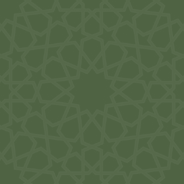
Islamic Courses is a “non-profit” project initiated by Islamic Circles, a community-based network that has been running at the Froud Community Centre, East London since January 2001. They organise a wide range of Islamic events, projects and activities including short courses, seminars, workshops, social gatherings and more.
We serve as a much-needed platform to engage leading Muslim theologians, thinkers, philosphers, academics AND non-Muslim experts on various aspects of the Muzlamicate Civilisation through one day or weekend based seminars and courses. These are mainly aimed at junior Muslim scholars(Ulema), Imams, senior activists (dai’ees), junior Muslim academics, think tank and researchers, and Islamicate read professionals.
These seminars and courses focus on subjects which are not usually covered by both Muslim Colleges and mainstream institutions and usually look at particular aspects of theology, history, science, education, spirituality, politics and modernity and ideas.
We are NOT an ”academic institute” or "seminary ” and thus we DO NOT provide any “ijaza”, “certification”, or “academic qualifications”. We do not set any exams be it oral or written, nor do we collect points which contribute to recognised qualification from any educational institute.
Islamic Courses is non-sectarian and does not support or promote any ideology, school of thought, think-tank or government agenda. All opinions are those of the speaker only and not of Islamic Courses.
We do not organise course pertaining to basic beliefs and rituals.
Our courses are open to ALL, Muslim and non-Muslim. However given the nature of our courses and seminars, our targeted audience tend to be “intermediate-higher” level students of Islamic Sciences, university post graduates, Muslim activists, young Imams, scholars/ulema, young academics, 'cultured' professionals or anyone else interested in the subject.
All courses are taught in English unless mentioned. However, for some courses a standard of classical arabic is recommended. Occasionally, latin, farsi, turkish and urdu may be useful.
Delivery of courses will vary from presenter to presenter but generally presentation slides will be utilised and students are expected to make their own notes.
Courses are delivered ONSITE in person and for those who can not attend in person can purchase the LIVE ONLINE STREAMING ticket to watch it from their device and those coming onsite, should decide not to attend in person on the day or half the day, will still recieve a link to the live online streaming, irrespective. However you are encouraged to attend in person if you have registered for that ticket, as this assists with room size allocation, respectively for fellow participants.
